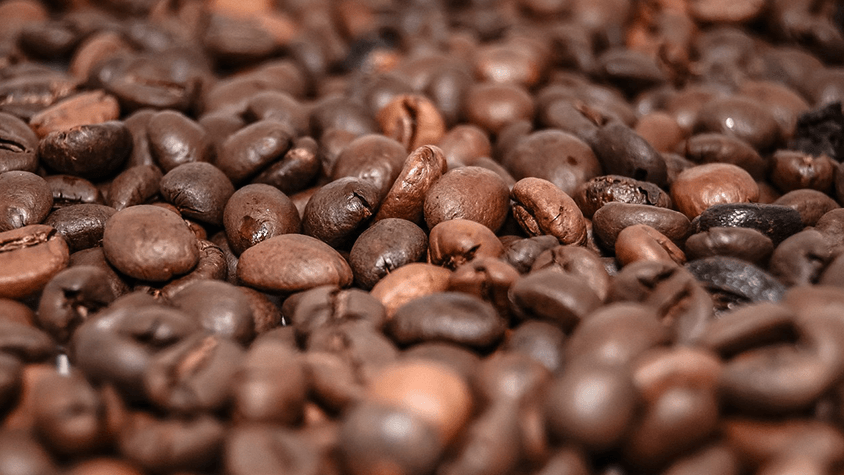Caffeine and L-Theanine for Focused Energy

Caffeine (caféine or كافيين), whether in caffeinated beverages like coffee and tea, or in caffeine pills, is probably the most widely used nootropic in the world. Many don't know, however, that the cognitive effects of caffeine may be better, and the side effects of caffeine may be reduced, when you combine caffeine with l-theanine.
Caffeine is an alkaloid extracted from plants and often dehydrated to caffeine anhydrous, in which the caffeine molecule is separated from water. Although the amount of caffeine in coffee and tea varies, a common rule of thumb is that there are about 100 mg of caffeine in a cup of coffee. And there are about 25 mg of caffeine in a cup of tea.
L-theanine is an amino acid found in plant and fungal species. Typically, apart from dietary supplements, the only source of l-theanine in the human diet is tea. The amount of l-theanine in tea varies, with about 10 mg of l-theanine in a cup of green tea and about 25 mg of l-theanine in a cup of black tea.
Caffeine, alone, is well known as an energy booster. And that's for good reasons. Multiple peer-reviewed, double-blind, placebo-controlled clinical studies on humans have found that caffeine may provide a notable increase to anaerobic running capacity, power output, and wakefulness:
-
Acute caffeine ingestion's increase of voluntarily chosen resistance-training load after limited sleep. In 2012, this study found that "Caffeine increased voluntary workload in professional athletes, even more so under conditions of self-reported limited sleep".
-
Caffeine ingestion reverses the circadian rhythm effects on neuromuscular performance in highly resistance-trained men. In 2012, this study found that "caffeine increases neuromuscular performance".
-
Induced alkalosis and caffeine supplementation: effects on 2,000-m rowing performance. In 2011, this study found that "rowers' performance in 2,000-m efforts can improve by ... caffeine supplementation".
-
Caffeine and opening the eyes have additive effects on resting arousal measures. In 2011, this study found that "Caffeine and opening the eyes have additive effects on two measures of arousal".
-
Effects of caffeine on repeated sprint ability, reactive agility time, sleep and next day performance. In 2010, this study found that "Caffeine improved [repeated sprint ability], including next day performance".
-
Effect of two doses of caffeine on muscular function during isokinetic exercise. In 2010, this study found that "relatively high but not low caffeine dose is ergogenic for maximal knee extension/flexion exercise".
-
Caffeine supplementation and multiple sprint running performance. In 2008, this study found that "caffeine has ergogenic properties with the potential to benefit performance in both single and multiple sprint sports".
-
Influence of caffeine on perception of effort, metabolism and exercise performance following a high-fat meal. In 2006, this study found that "while a number of metabolic responses were increased during exercise after caffeine ingestion, perception of effort was reduced and this may be attributed to the direct stimulatory effect of caffeine on the central nervous system".
-
Effects of caffeine on prolonged intermittent-sprint ability in team-sport athletes. In 2006, this study found that "acute caffeine ingestion can significantly enhance performance of prolonged, intermittent-sprint ability in competitive, male, team-sport athletes".
- Subjective, behavioral, and physiological effects of acute caffeine in light, nondependent caffeine users. In 2006, this study found that "acute doses of caffeine, at levels typically found in a cup of coffee, produce stimulant-like subjective effects and enhance performance in light, nondependent caffeine users".
L-theanine, alone, is also an effective nootropic. Multiple peer-reviewed, double-blind, placebo-controlled clinical studies on humans have found that l-theanine may provide a notable increase to relaxation without sedation:
-
Anti-stress effect of theanine on students during pharmacy practice: positive correlation among salivary α-amylase activity, trait anxiety and subjective stress. In 2013, this study found that L-Theanine "intake suppressed initial stress response of students assigned for a long-term commitment of pharmacy practice".
-
Effects of l-theanine on attention and reaction time response. In 2011, this study found that L-Theanine "clearly has a pronounced effect on attention performance and reaction time response in normal healthy subjects prone to have high anxiety".
-
The effects of L-theanine (Suntheanine®) on objective sleep quality in boys with attention deficit hyperactivity disorder (ADHD): a randomized, double-blind, placebo-controlled clinical trial. In 2011, this study found that L-Theanine "is safe and effective in improving some aspects of sleep quality in boys diagnosed with ADHD".
-
L-Theanine reduces psychological and physiological stress responses. In 2007, this study found that "oral intake of [L-Theanine] could cause anti-stress effects via the inhibition of cortical neuron excitation".
-
The acute effects of L-theanine in comparison with [drug] on anticipatory anxiety in humans. In 2004, this study found that L-Theanine "may have some relaxing effects under resting conditions".
- Effects of Theanine on the Release of Brain Alpha Wave in Adult Males. In 2003, this study found that L-Theanine "containing tablets promote the release of alpha waves related to mental relaxation and concentration in young adult males".
Unfortunately, some people experience distraction or jitters along with the energy boost from caffeine. But that's where the combination of l-theanine with caffeine can help. Multiple peer-reviewed, double-blind, placebo-controlled clinical studies on humans have found that caffeine and l-theanine, together, may provide an increase to focus:
-
The combination of L-theanine and caffeine improves cognitive performance and increases subjective alertness. In 2010, this study found that "L-theanine in combination with ... caffeine helps to focus attention during a demanding cognitive task".
-
L-theanine and caffeine improve task switching but not intersensory attention or subjective alertness. In 2010, this study found that "L-theanine and caffeine in combination can improve attention".
-
The combined effects of L-theanine and caffeine on cognitive performance and mood. In 2008, this study found that "L-theanine and caffeine in combination are beneficial for improving performance on cognitively demanding tasks".
-
The effects of L-theanine, caffeine and their combination on cognition and mood. In 2008, this study found that "in addition to improving [rapid visual information processing] accuracy and 'mental fatigue' ratings, the combination also led to faster simple reaction time, faster numeric working memory reaction time and improved sentence verification accuracy ... 'headache' and 'tired' ratings were reduced and 'alert' ratings increased ... there was also a significant positive caffeine x L-theanine interaction on delayed word recognition reaction time".
-
Time for tea: mood, blood pressure and cognitive performance effects of caffeine and theanine administered alone and together. In 2008, this study found that "Theanine antagonised the effect of caffeine on blood pressure".
- L-theanine and caffeine in combination affect human cognition as evidenced by oscillatory alpha-band activity and attention task performance. In 2008, this study found that "combined ingestion of [caffeine and theanine] ... facilitated behavioral performance".
Another possible side effect from caffeine, if consumed too frequently, is tolerance and dependence (or "addiction" as some may characterize it). Caffeine tolerance may reduce the overall nootropic benefit of caffeine use over time. And caffeine dependence may result in discomfort, such as headache, when you stop using caffeine.
So how much caffeine is too much? How much can you take and still avoid caffeine withdrawal symptoms when you stop using it? According to the European Food Safety Authority (EFSA) guidance on caffeine, as well as the following studies, it is generally safe for adults who are not pregnant or nursing to use up to 400 mg of caffeine in a single day:
-
Characterization of individuals seeking treatment for caffeine dependence. In 2012, this study found that "Caffeine treatment seekers consumed an average of 548 mg caffeine per day".
-
Coffee and health: a review of recent human research. In 2006, this study found that for "adults consuming moderate amounts of coffee (3-4 cups/d providing 300-400 mg/d of caffeine), there is little evidence of health risks and some evidence of health benefits".
- Effects of caffeine on human health. In 2003, this study found that "moderate daily caffeine intake at a dose level up to 400 mg day ... is not associated with adverse effects".
However, some people may still develop a tolerance to caffeine at low daily dosages, and thereby lose some of the nootropic benefits of caffeine. To ensure the nootropic benefits of caffeine remain fully available to you, avoid daily use.
Thrivous Surge
Based on these and other studies, Thrivous developed Surge Acute Nootropic. It's designed for occasional use when you need extra energy and focus. Each serving provides clinical doses of Caffeine and L Theanine, as well as Panax Ginseng. Surge is available to buy online in the Thrivous store.
More Articles
Read more articles at Thrivous, the human enhancement company. You can browse recent articles in Thrivous Views. See other Nootropics or Product Ingredient articles. Or check out an article below.
-
The Brain, the Body, and the Heart
Welcome to another issue of Pulse, an exploration of human enhancement today and tomorrow, brought to you by Thrivous! This ...
-
Value Proposition of Nootropics for a College Student
As a college student, your sporadic schedule and late night hours combine with cheap pizza, wings, and other carb-laden fare ...



